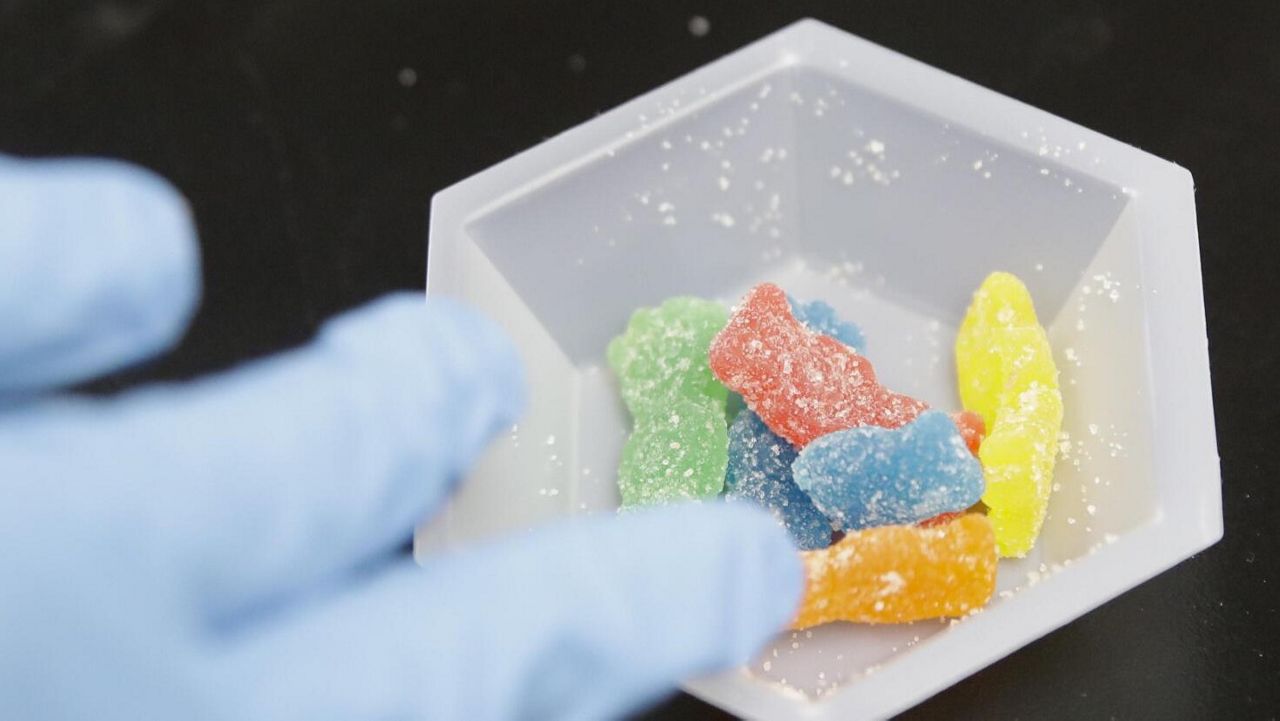COLUMBUS, Ohio — A new study shows there's been a sharp rise in delta-8 tetrahydrocannabinol (THC) exposure, especially in children.
The study, which was done by researchers at the Center for Injury Research and Policy of the Abigail Wexner Research Institute at Nationwide Children’s Hospital and the Central Ohio Poison Center, examined trends in calls to poison centers across the country for delta-8 THC exposure.
The study shows the rate delta-8 THC exposure reported to poison control centers increased by nearly 80% from Jan. 1, 2021 to Dec. 31, 2022. The southern U.S. accounted for more than two-thirds of those exposures. The rate of exposures was much lower in states where delta-8 THC is banned, as well as states where it's legal to use cannabis.
During that same time period, 50% of children under 6 years old accounted for non-critical care unit (CCU) admissions, whereas nearly 58% of them accounted for CCU admissions.
“All cannabis products, including delta-8 THC, can be extremely toxic for young children. Children represented more than half of exposures in this study, with nearly one in three exposures being children younger than 6 years,” said Dr. Hannah Hays, co-author of the study.
Nationwide Children's explained delta-8 THC is often referred to as "diet weed" or "hemp products," which gives them the misconception of being a safer alternative to delta-9 THC, which is more regulated. Delta-8 THC hasn't been approved by the U.S. Food and Drug Administration.
The FDA said it received more than 100 reports of adverse effects of the THC between Dec. 1, 2020 and Feb. 28, 2022. Of those patients, some were taken to the hospital, whereas some had symptoms, such as hallucinations, vomiting, tremor, anxiety, dizziness, confusion, and loss of consciousness.
The FDA also noted that national poison control centers received more than 2,300 exposure cases of delta-8 THC products between Jan. 1, 2021, and Feb. 28, 2022.
Authors in the study attribute to the increased exposure to a few reasons, including the lack of safe storage.
“If someone vapes, smokes, eats edibles or drinks infused beverages with delta-8, those products should be stored up, away, and out of sight and reach of children, preferably in a locked container,” Hays said. “These products should never be used in front of kids who might mistake them for food or drinks that they are allowed to have.”
In addition to safely storing products, the researchers recommended these steps to prevent delta-8 THC exposure:
- Have a conversation about cannabis-related products. Explain what those products are and how they could be dangerous.
- Don't use the products in front of children, especially if they're packaged to look like treats.
- Save the national Poison Help Line number and post in a visible place inside the home: 1-800-222-1222



